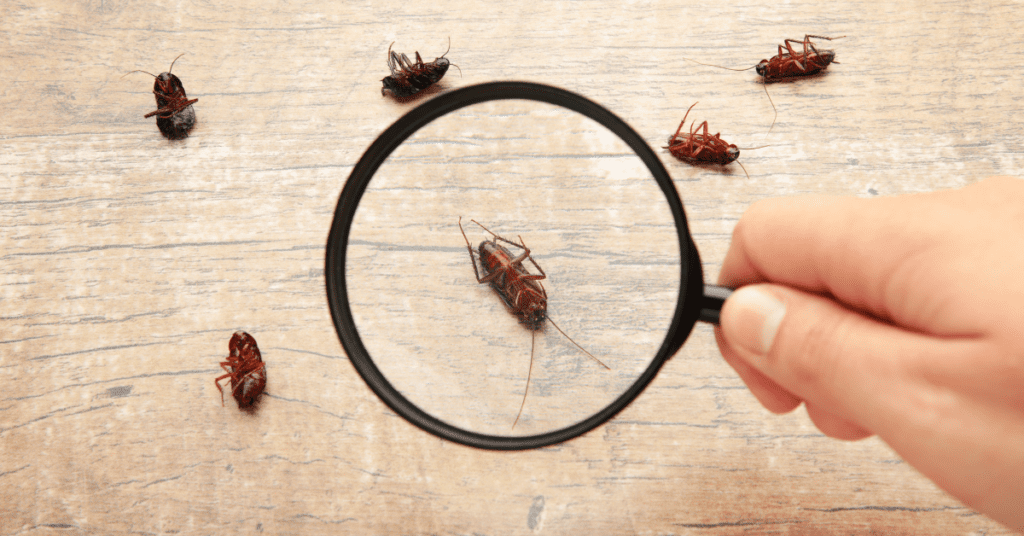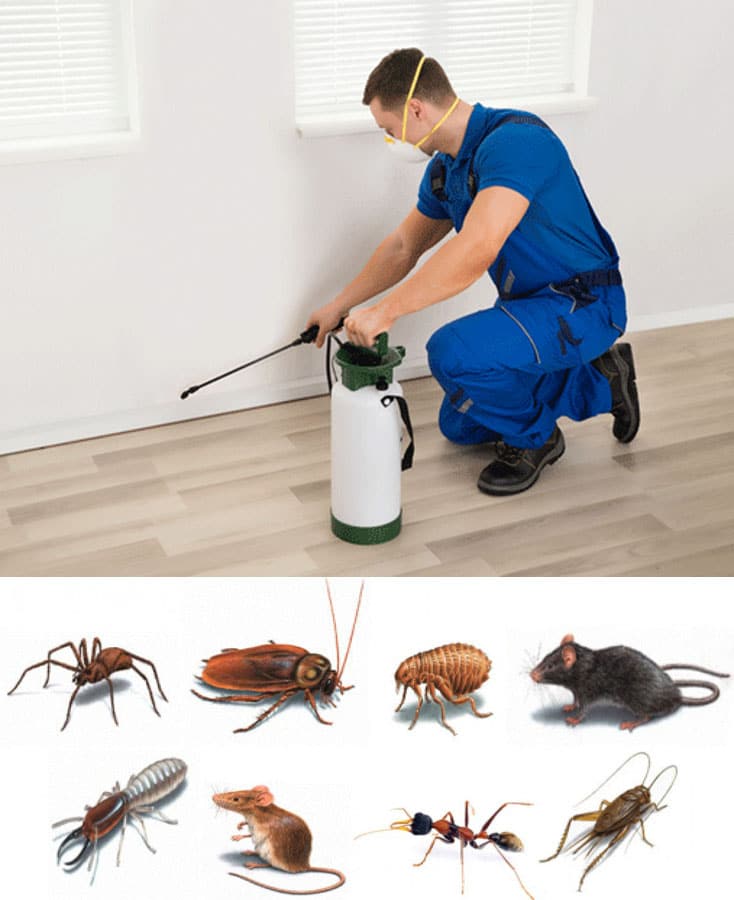Safe and Trustworthy Pest Control for Lasting Defense
Reliable parasite monitoring requires a diverse strategy that stabilizes environmental stability with the need for efficient bug reductions. The nuances of these approaches might not be immediately clear, motivating a more detailed evaluation of the techniques that can lead to lasting insect control results.
Recognizing Parasite Control Methods
Parasite control encompasses a selection of techniques intended at managing and eradicating unwanted bugs and rodents that can endanger both wellness and building. Understanding these methods is critical for reliable bug monitoring.
The main groups of bug control techniques consist of mechanical, organic, and chemical methods. Mechanical approaches involve physical obstacles and traps to prevent bug access and capture unwanted species. Utilizing displays on windows or employing sticky traps can substantially minimize parasite populations without presenting unsafe compounds - exterminator coquitlam.

Chemical bug control is frequently one of the most identified technique, making use of chemicals to get rid of parasites. These chemicals can be efficient however must be utilized with care to stay clear of unfavorable effects on non-target types and the atmosphere.
Advantages of Eco-Friendly Solutions
How can environment-friendly services transform bug control methods? The fostering of environmentally friendly parasite control methods supplies many advantages, considerably enhancing the effectiveness and security of parasite administration (exterminator coquitlam). Firstly, these solutions make use of all-natural active ingredients, reducing the reliance on harmful chemicals that can present dangers to human health and wellness and the atmosphere. This change not only shields pet dogs and families but also reduces the potential for dirt and water contamination.

An additional advantage is the favorable influence on neighborhood biodiversity. Environmentally friendly solutions are designed to target particular bugs while preserving useful insects and wild animals, advertising a balanced community. This approach straightens with the growing consumer demand for lasting practices, boosting the credibility of pest control companies.
Integrated Parasite Administration Approaches
The execution of environmentally friendly solutions normally causes the fostering of Integrated Pest Management (IPM) methods, which even more boost bug control efficiency. IPM is an alternative method that integrates numerous tactics to manage pest populations while minimizing ecological influence. This strategy highlights the usage of organic, cultural, mechanical, and chemical controls, making certain a sustainable and balanced method of bug administration.
One fundamental facet of IPM is the complete analysis of parasite activity and ecological conditions. By checking parasite populations and recognizing their life process, experts can implement targeted interventions that interrupt the insect's habitat or lifecycle, reducing reliance on chemical pesticides. Additionally, cultural practices such as plant turning and habitat manipulation can significantly reduce pest establishment and reproduction.
Another crucial component is the use of biological control representatives, such as helpful bugs or bacteria, which can naturally reduce insect populations. When chemical applications are necessary, IPM focuses on making use of low-risk chemicals and uses them selectively, lessening exposure to non-target microorganisms and humans.
Incorporating IPM techniques not just enhances pest control effectiveness but also promotes a safer ecological community, lining up with the growing demand for sustainable practices in insect management.
Safe Practices for Home Owners
Recognizing the relevance of risk-free practices in insect control can empower home owners to efficiently manage pest problems while guarding their wellness and the setting. Applying non-toxic approaches and preventative measures is critical in decreasing exposure to harmful chemicals.
House owners should first assess their environment for conditions that attract parasites, such as standing water, food, and mess waste. Consistently cleansing and sealing entry points can deter parasites from getting into go to this site the home. Utilizing all-natural deterrents, such as vital oils or diatomaceous planet, can provide reliable alternatives to chemical pesticides.
When chemical treatments are needed, home owners must select products that are specifically classified as safe for household use. It is vital to adhere to application guidelines diligently to prevent too much exposure. Utilizing targeted treatments in areas where insects are identified, rather than blanket splashing, can significantly minimize chemical usage.
Finally, maintaining open communication with insect control specialists is vital. Property owners must ask about the security of items utilized and request environment-friendly options whenever feasible. By adopting these secure methods, homeowners can create a much healthier living setting while properly managing pest problems.

Tips for Long-Term Defense
Establishing a pest management strategy that highlights long-term security can substantially improve the effectiveness of the risk-free practices formerly discussed. To accomplish this, homeowners need to implement normal inspections of their building, concentrating on concealed areas such as attics, basements, and crawl areas. Early detection of pest activity is critical in avoiding infestations from holding.
Additionally, keeping a tidy atmosphere is important. This consists of proper food storage space, promptly cleansing spills, and regularly throwing website link away trash. These practices minimize attractants that draw parasites right into the home. Sealing access factors, such as cracks around home windows and doors, internet can efficiently block prospective pest accessibility.
Landscape design must likewise be thought about; maintaining plants trimmed and keeping a distance in between plant life and the home reduces concealing areas for parasites. Using all-natural deterrents, such as vital oils or diatomaceous planet, can further discourage invasions without considering severe chemicals.
Last but not least, working together with a specialist insect control solution for periodic examinations can provide an additional layer of protection. These professionals can supply tailored suggestions and progressed therapies, ensuring that your home continues to be secured versus bugs in the lengthy term.
Final Thought
In conclusion, trusted and safe insect control needs a diverse approach that emphasizes green approaches and integrated insect administration. By carrying out all-natural deterrents, carrying out normal evaluations, and preserving appropriate cleanliness, residential or commercial property owners can substantially lower parasite populaces while safeguarding helpful bugs and the setting. Partnership with expert bug control services enhances the effectiveness of these techniques, guaranteeing tailored solutions that provide lasting protection and comfort versus future problems.
Reliable bug administration needs a diverse strategy that balances ecological integrity with the need for reliable parasite reductions. The adoption of environmentally friendly pest control approaches supplies countless advantages, substantially enhancing the effectiveness and safety and security of bug administration.The implementation of green remedies naturally leads to the adoption of Integrated Bug Administration (IPM) strategies, which better improve pest control efficiency. exterminator coquitlam. By monitoring bug populations and recognizing their life cycles, professionals can apply targeted treatments that disrupt the bug's environment or lifecycle, minimizing dependence on chemical pesticides.In conclusion, trustworthy and safe insect control needs a diverse strategy that highlights eco-friendly techniques and incorporated insect monitoring